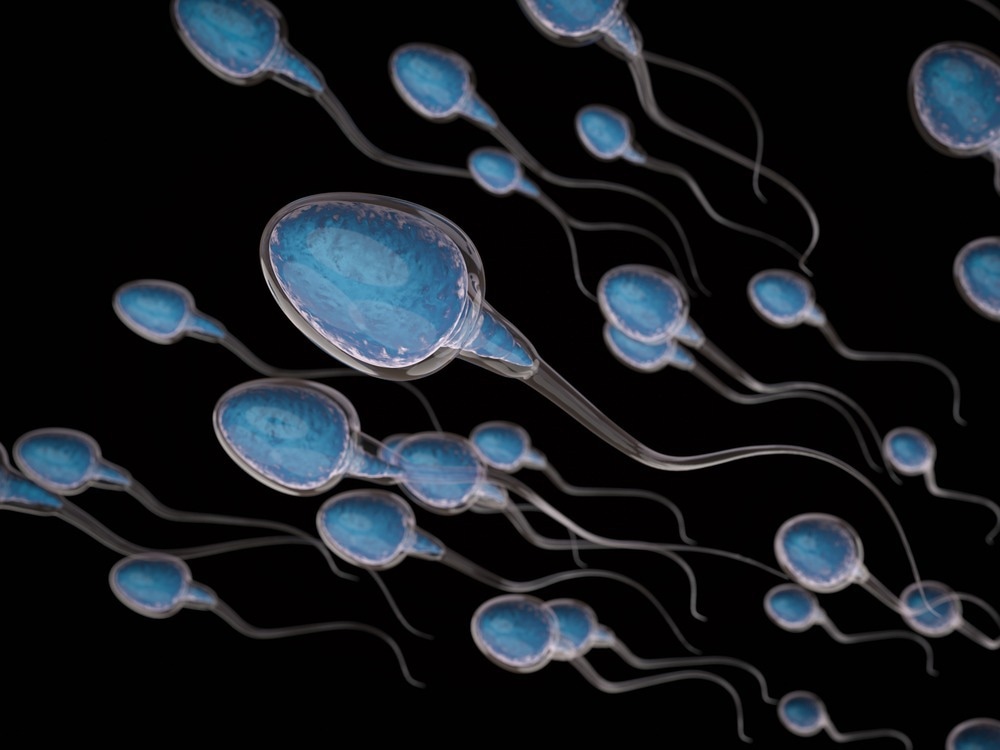Coronavirus disease 2019 (COVID-19) vaccines are effective in reducing deaths due to infection with the causative severe acute respiratory syndrome coronavirus 2 (SARS-CoV-2). Furthermore, widespread vaccination against COVID-19 has successfully reduced infection rates and severe COVID-19 outcomes.
SARS-CoV-2 infection has previously been reported to adversely affect male fertility, as demonstrated by a temporary reduction in sperm production. Although current COVID-19 messenger ribonucleic acid (mRNA) vaccines have been associated with minimal or no effect on male fertility, concerns regarding their potential reproductive toxicity remain a major cause of vaccine hesitancy.

Study: Long-Term Evaluation of Sperm Parameters Following COVID-19 mRNA Vaccination. Image Credit: Phonlamai Photo / Shutterstock.com
A recent F&S Reports journal study compared the effects of COVID-19 vaccines on male fertility at a median of nine months after receipt of two mRNA vaccine doses.
About the study
The current study was conducted at the University of Miami between September 2021 to March 2022. A total of 45 male participants between 18-50 years of age who previously participated in another study by the current authors were contacted for the current study.
Volunteers with a history of at least two mRNA vaccine doses over the past nine months were included in the study. Any participant with a history of COVID-19 in the last three months was excluded from the study.
Participants with decreased sperm parameters, a history of azoospermia, or a history of receiving anabolic steroids or testosterone replacement therapy within the past year were also excluded.
Taken together, 12 individuals were available for the follow-up study. All study participants remained abstinent for two to five days prior to semen sample collection.
Each semen sample was analyzed for its volume, total motility, and total motile sperm counts (TMSC). The median change in TMSC values was compared at baseline, three months, and at least nine months following vaccination.
Study findings
Samples were collected at a median of 11 and 10 months following receipt of the first and second doses of COVID-19 vaccines, respectively. Six participants had received booster doses at a median of two months before sample collection.
Whereas seven of the study participants had received their primary vaccine series with the Moderna mRNA1273 vaccines, the remaining five participants received the Pfizer-BioNTech BNT162b2 vaccines.
The median TMSC values were 31 million, 33 million, and 37.5 million at baseline, three months, and a minimum of nine months following COVID-19 vaccination. Taken together, TMSCs did not differ significantly at any time point in the current study.
The semen samples from three participants exhibited oligospermia at baseline, two of which two became normospemic at three and nine months after vaccination. The remaining semen sample continued to exhibit oligospermia at all time points.
Conclusions
No significant change in semen parameters was observed three months after COVID-19 vaccination as compared to baseline values. This finding was consistent with previous reports.
The preservation of sperm characteristics following vaccination may be attributed to the mechanism of action of mRNA vaccines, the lack of live viruses, and the inability of these vaccines to alter human genetic material.
Furthermore, due to the presence of the blood-testis barrier, the mRNA within COVID-19 vaccines did not localize in the gonads. Since evidence suggests that mRNA vaccines do not impact female ovarian reserve, the current study findings can reassure vaccine-hesitant individuals who are worried about their reproductive health and fertility.
Nevertheless, further studies are needed to determine the long-term effects of COVID-19 vaccines on human sperm quality and live pregnancy rate.
Journal reference:
- Diaz, P., Dullea, A., Patel, M., et al. (2022). Long-Term Evaluation of Sperm Parameters Following COVID-19 mRNA Vaccination. F&S Reports. doi:10.1016/j.xfre.2022.07.007.